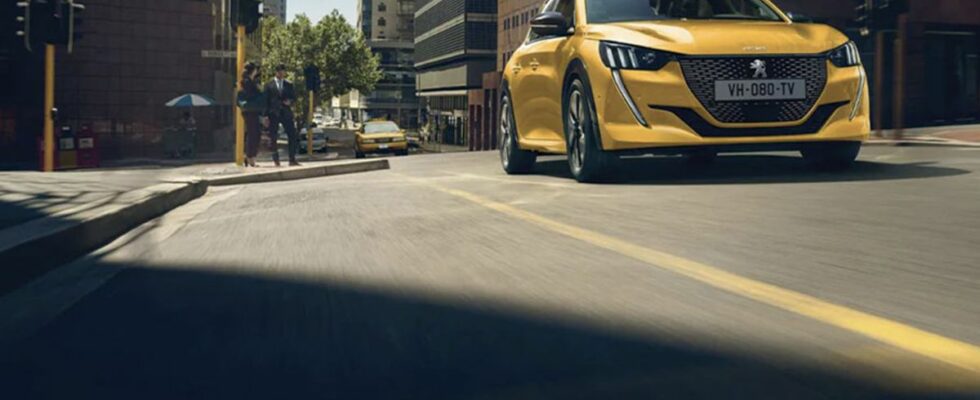The year 1975, during which the French car market was at its lowest, is etched in our memories. From now on, we will also have to reckon with 2022, annus horribilisas the late Queen of England Elizabeth II used to say.
We would have liked the slight increase seen in 2021 to be confirmed in 2022. Unfortunately, the automotive market has broken sad records, with a 7.8% drop in new car registrations compared to 2021. This despite the four consecutive months increases recorded in the second half of 2022.
In concrete terms, 1,529,035 new passenger cars were registered against 1,659,003 in 2021 and 1,650,000 in 2020 (-6.7%). We are still very far from the 2.214 million recorded in 2019, the last “normal” year before the Covid-19 pandemic wreaked havoc. As a result, some 670,000 registrations are missing, the equivalent of three months of activity.
Beyond the Covid, it is “a series of crises“Who is responsible for this dark year, said François Roudier, head of communication for the PFA, to our colleagues at AFP. The market, which has fallen”a third of volume since 2019“, suffered the “semiconductor crisis, the war in Ukraine, difficulties in delivering vehicles due to lack of drivers, increased material costs and overpriced fuel“. Added to this is the wait-and-see attitude of the French – affected by inflation – who, to reduce the impact on their budget, are hesitating between a new car and a second-hand vehicle. Another factor of uncertainty, the acceleration the establishment of numerous ZFEs (low emission zones) in large cities.
What about 2023?
A clever and courageous analyst who will be able to accurately predict what awaits the French market in 2023. According to Marie-Laure Nivot, market intelligence manager at AAA DATA, “several factors lead us to believe that 2023 will be another tense year on the new car market. First, the constraints that weighed down in 2022 will probably not disappear in 2023. We will continue to evolve in a context of the semiconductor crisis, pressure on French purchasing power and war in Ukraine. Then we saw a decline in new vehicle orders in 2022, which will impact the level of sales this year.“.
Others, like Lorraine Morard, senior automotive analyst at S&P Global, do not hesitate to get wet by believing that “sales of private vehicles will increase by 9.9%, representing a volume of 1.63 million registrations. Adding utilities, the overall market is estimated at 1.99 million units (+ 6.5%)” (source NGC Data / L’Argus). In short, car manufacturers and dealers are not more advanced than that.
Acclaimed gasoline, electric on the rise, PHEV in freefall
The study of engines shows that petrol vehicles are still popular, with a market share of 37.2% for the year 2022, while diesel continues to fall, to 15.6% market share.
Supported by the various state aids, electric – with 203,121 registrations of new vehicles between January and December 2022 – continues to progress with a national market share of 13.3%, an increase of 25% compared to 2021. It remains to be seen whether the new rules concerning aid for the purchase of an electric vehicle will not have a negative impact…
Among the big winners, hybrids and mild hybrids (MHEV), which hold 21.8% market share in 2022, an increase of 15%. As for rechargeable hybrid vehicles or PHEV, their registrations fell by 10%, with 126,550 copies.
We note the good performance of so-called alternative engines, such as superethanol (E85) and LPG, whose market share represents 5% over the year. A trend linked to the decline in purchasing power and inflation.
Peugeot 208, Dacia Sandero 2 and Renault Clio V, the winning trio
Like the annual Miss France competition, the French automotive market also has its winners for 2022. Almost unsurprisingly, it is the Peugeot 208 that takes the lead and literally crushes the competition with 69,590 copies. In second place, and this is THE surprise of the moment, we find the Dacia Sandero 3 (64,293 units) which tops the Renault Clio V (64,012 units). We will not thank Peugeot, which combines the sales of its thermal and electric versions for the 208 in particular. It is assumed that the same is true for 2008.
The top 10 is entirely occupied by French brands, with the exception of Dacia. Thus, the Stellantis group (Peugeot, Citroën, DS, Opel, Fiat, etc.) places five cars including the Citroën C3 (4th; 58,880 copies), Peugeot 2008 (5th; 51,454 copies), Peugeot 308 (7th; 41 656 copies) and Peugeot 3008 (8th; 36,281 copies). Tied, the Renault group (Renault, Dacia and Alpine) with five cars also if we count the Dacia Sandero 3 and Duster 2.
Sixth place is occupied by the Renault Captur (45,577 copies), while the Dacia Duster 2 (31,648 copies) and the Renault Arkana (31,638 copies) occupy 9th and 10th place.
The first 100% electric vehicle is the Peugeot e-208 (19,222 units) positioned in 18th place followed by the Dacia Spring (18,326 units), positioned in 19th place, while the Tesla Model 3 is in 24th position with 17,005 copies.

